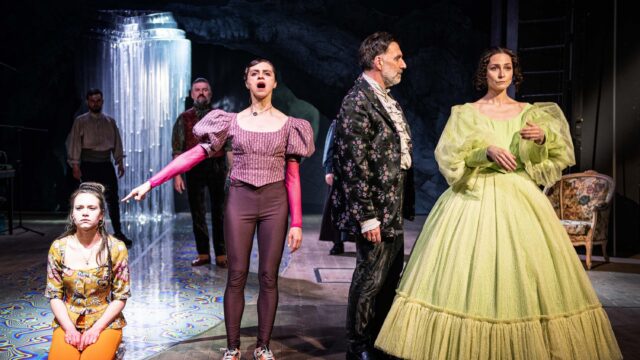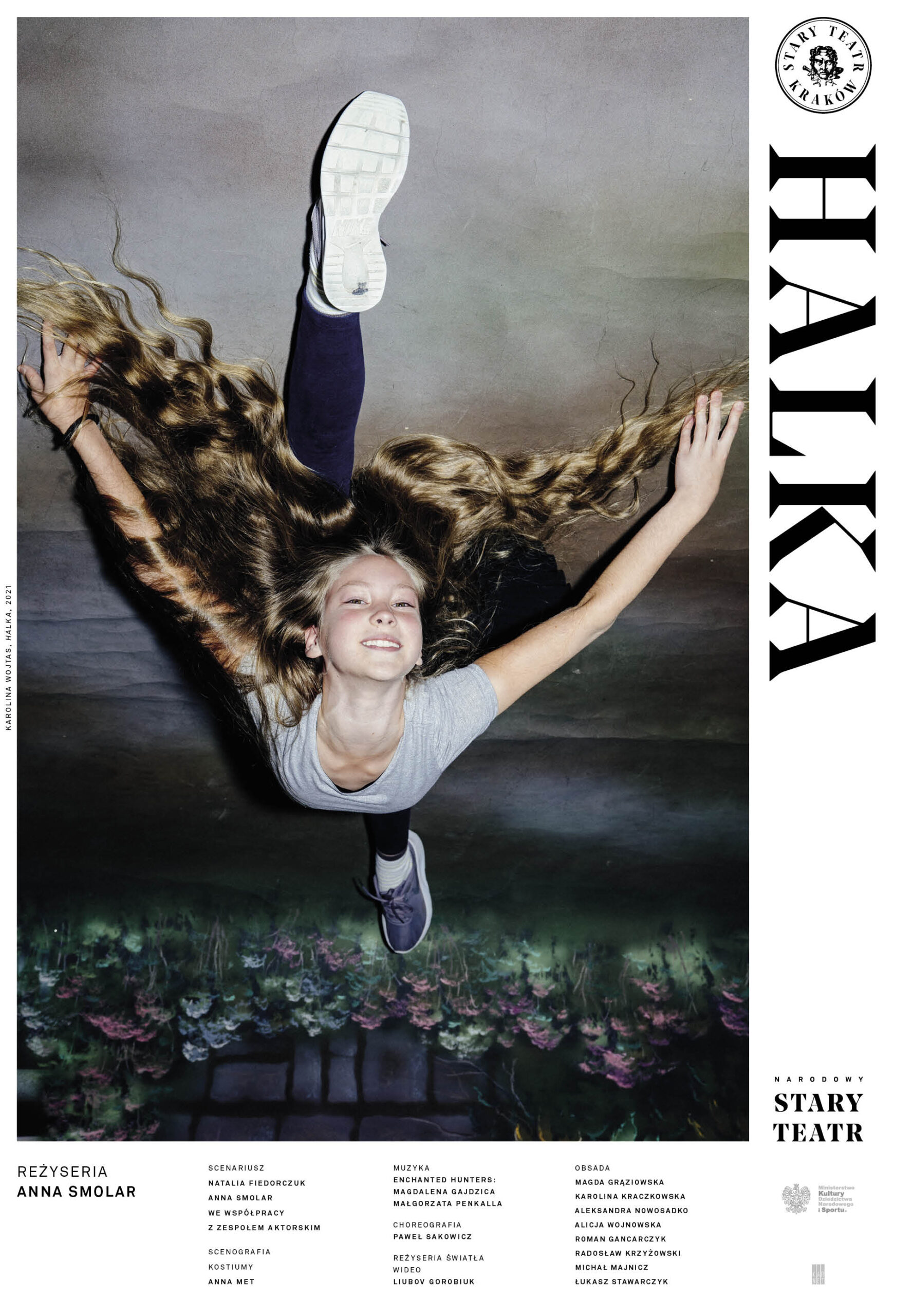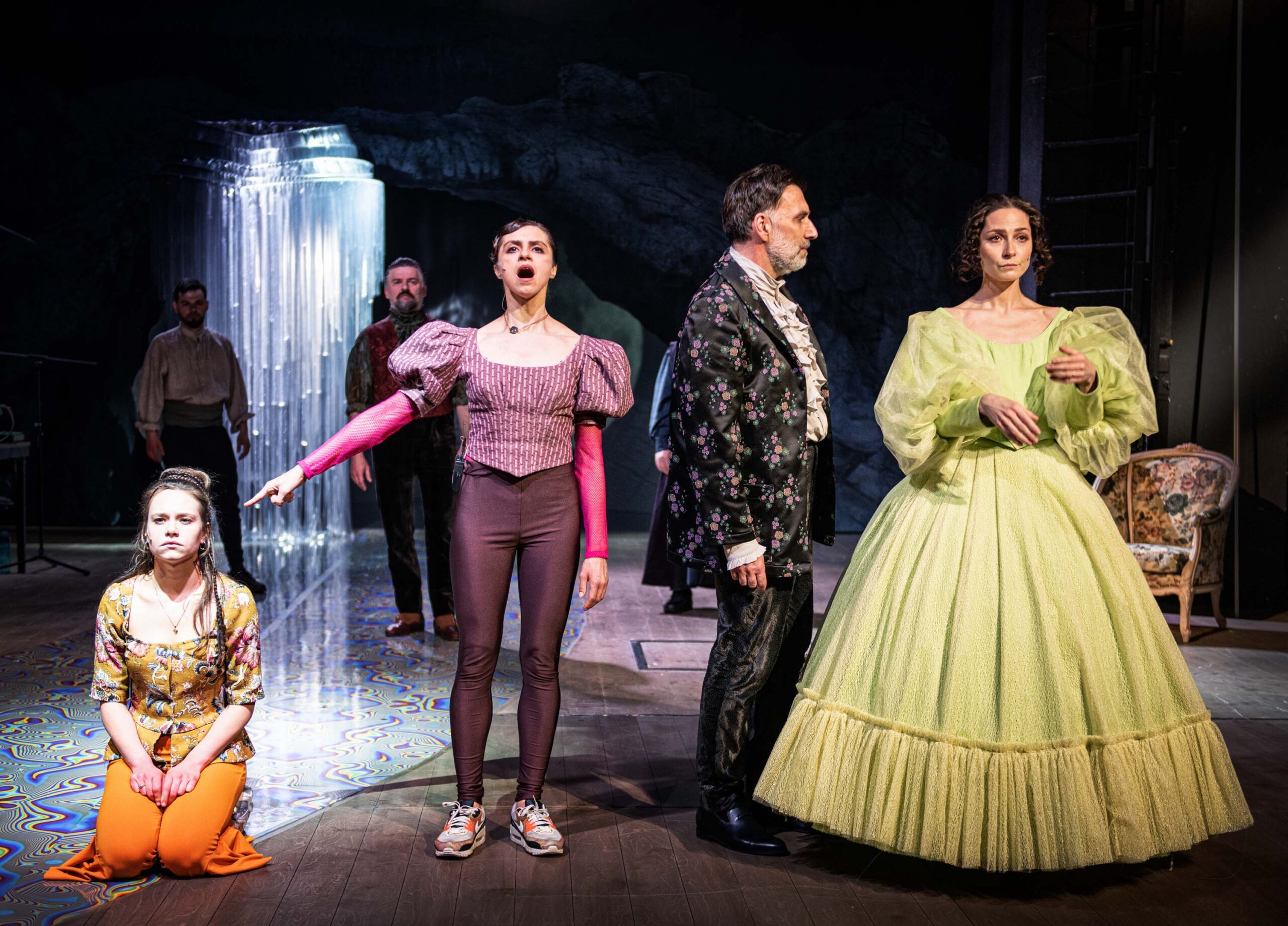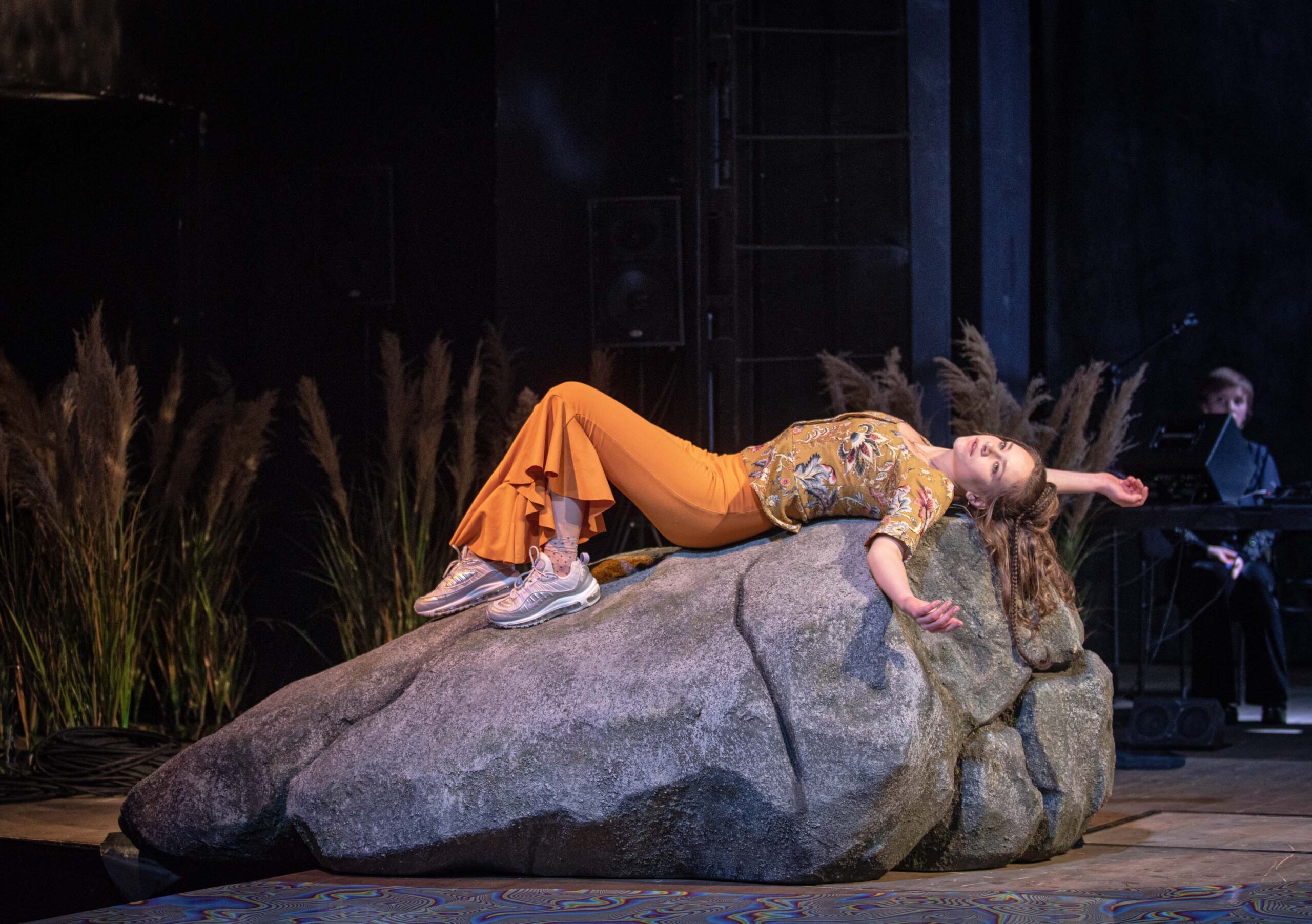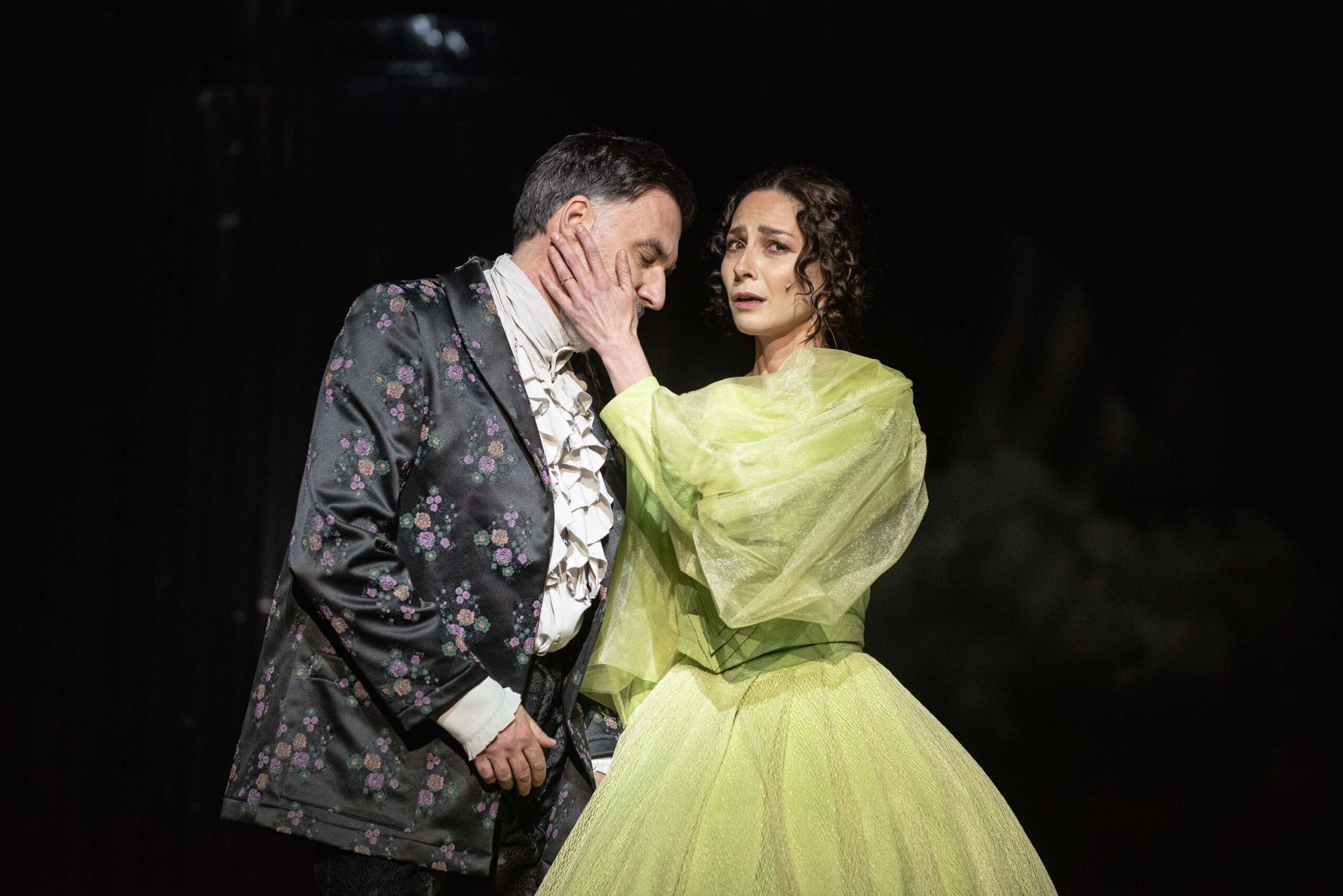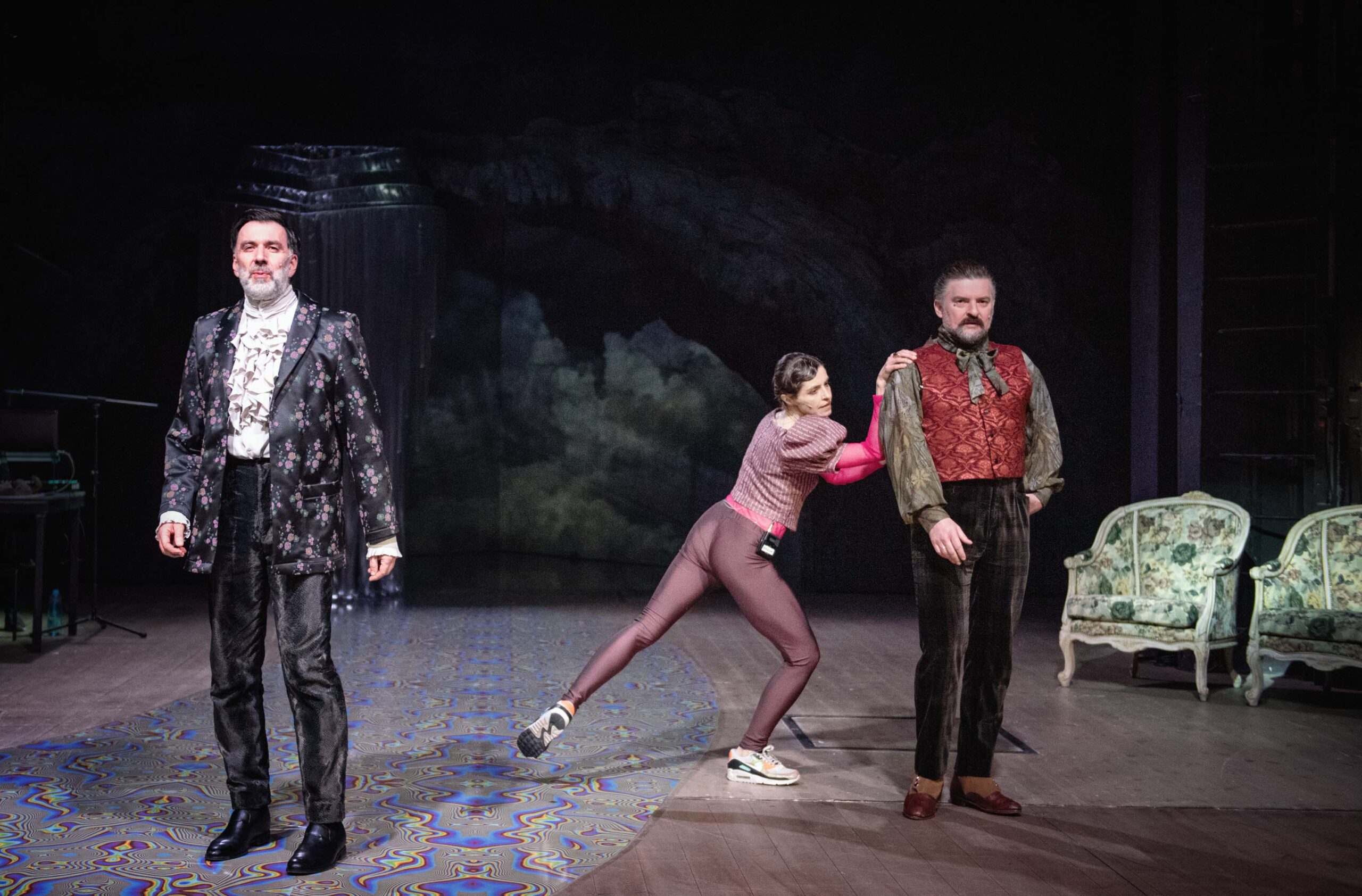Repertoire
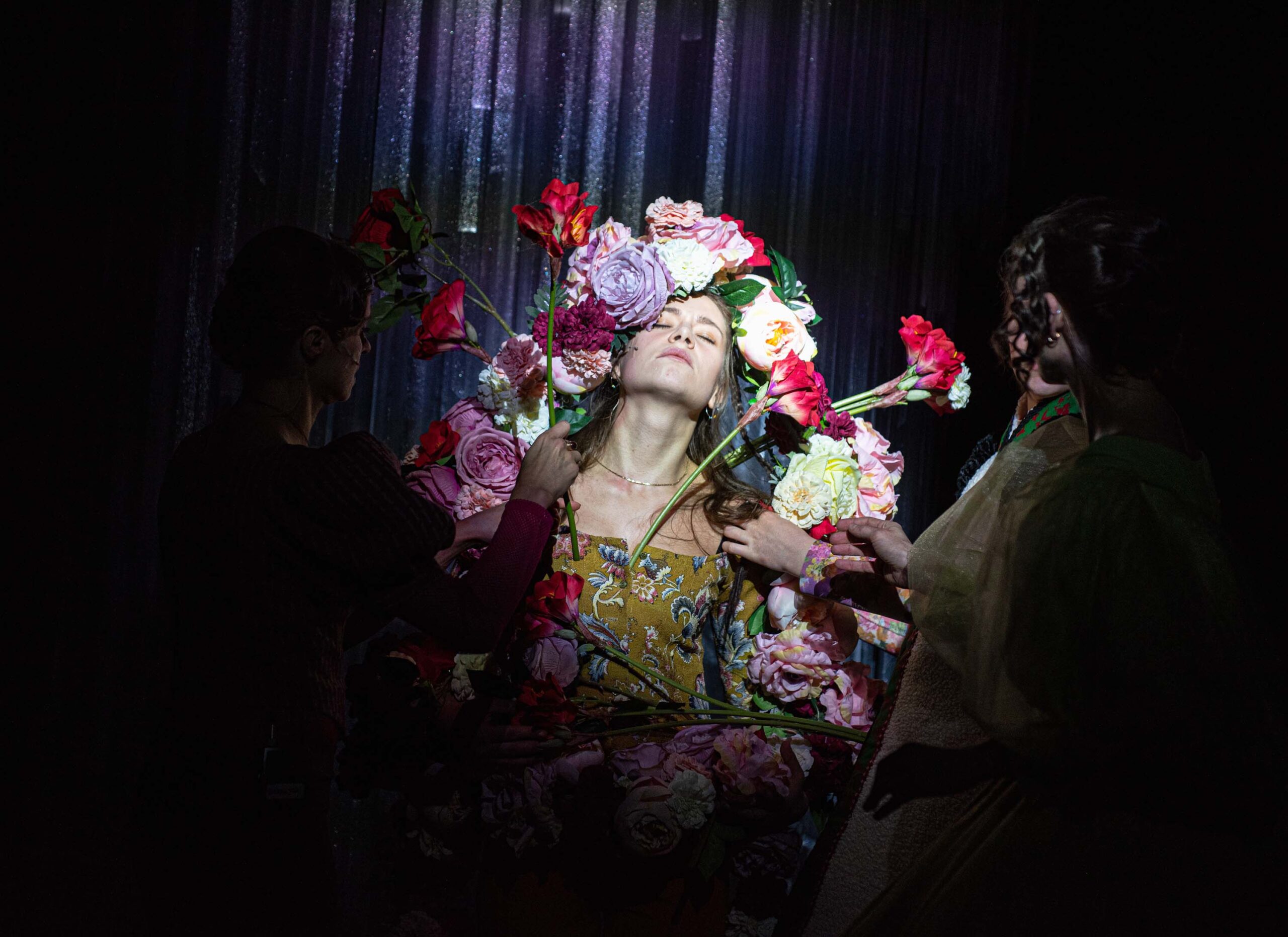
Halka
Dir. Anna Smolar
ul. Jagiellońska 1
A madwoman, lost, wanton, deranged, a victim – this is a woman who, if only for a moment, believed in her power, only to have that power taken away. She may have her defenders, who heroically stand up for the weak and will speak on her behalf – except that the voices of her advocates, albeit in good intention, only confirm her symbolic status. Her role is decorative: she is a little mermaid and a silent symbol. If we were to start to listen, her j’accuse would prove extremely inconvenient, both for those who have harmed her and for those who stand up for her good name. The protest of the victim is always a blow to the social structure and the natural understanding of consequences, roles, and obligations.
In its day, this text by nineteenth-century poet Włodzimierz Wolski worked perfectly as an artistic commentary on the causes and consequences of the Galician Slaughter. Perhaps not as adamantly as Wyspiański in “Liberation,” but quite bravely nonetheless, the libretto for “Halka” delves into the tension between the “defenders of Poland,” aka the landowning class, and the “traitor peasants,” who sided with the Austrian Empire to end their exploitation at the hands of the nobility once and for all. Between the nobility – who are not blameless – and the peasants – with a slowly birthing consciousness of their subservient position, stands Halka, whom Moniuszko and Wolski make beautiful, dumb, miscarrying a bastard child, and perishing by suicide, in confusion and despair. The character of Halka accommodates the interpreter. Her status as silent allows us to project upon her what significance and metaphors we please. The conflict of the social classes, Halka as a motherland “stripped and plundered” by the partitioning forces – “besmirched” by the partitioning nobility, accused by the peasants of having given them nothing, unable to accept the feudal system that has ravaged her for centuries. If Halka could speak, the dynamic of this dramatic situation would have immediately changed. And what if she were allowed a touch of the justified rage that women have been denied?
The authors of the play, director Anna Smolar and dramaturg Natalia Fiedorczuk, are grappling not only with the reformulation of the content, with giving Halina her own voice, but also with developing a new form of this classic, so that the theatre should take on the challenge of telling Halka’s story all over again.
Musically and choreographically the play is a masterstroke, because Anna Smolar’s “Halka” wouldn’t exist without Paweł Sakowicz’s choreography, which is just as vital as the script. (…) In the finale everyone joins in the dance with the chairs, women and men, each in their own style with their own history, but as a community. And this is a tale we need more than the Polonezes and Mazurkas. Maybe the slightly naive sisterly meeting between Zofia and Halina holding hands on stage, maybe Jontek thinking that he might have been born a girl and then he could have lived through what Halina did, or maybe Janusz, wondering when life became so hard?
Marta Zdanowska, dwutygodnik.com
ATTENTION:
In the performances presented on October 17-20, 2024, PAWEŁ SAKOWICZ will perform the role of the Dancer.
Cast
Creators
- Anna Smolar Director
- Natalia Fiedorczuk, Anna Smolar, in collaboration with the ensemble of actors Script
- Anna Met Scenography / costumes
- Paweł Sakowicz Choreography
- Enchanted Hunters (Magdalena Gajdzica, Małgorzata Penkalla) Music
- Liubov Gorobiuk Lighting director / video
- Ewa Galica, Kalina Jagoda Dębska Assistants director
- Stefania Jabłońska Assistant scenographer
- Zbigniew S. Kaleta Stage manager
